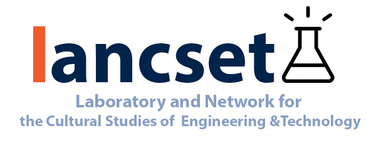Laboratory and Network for the Cultural Studies of Engineering and Technology (LANCSET)
Most Recent Publication
Clancy, R., Zhu, Q, & Tang, X. (Eds.). (2024). China, engineering, and ethics: A sketch of the landscape. Cham, Switzerland: Springer. |
Who We Are
LANCSET (Laboratory and Network for the Cultural Studies of Engineering and Technology) is an interdisciplinary research group at Virginia Tech.
Based in Virginia Tech, LANCSET is an open, inclusive laboratory & community consisting of scholars committed to studying technology and engineering from culturally responsive perspectives. The group is committed to making visible and challenging cultural values and ideologies prominent in training, practices, and policies surrounding engineering and technology, using empirical and experimental methodologies to study the effects of cultural values and norms on these environments. LANCSET explores cultural factors affecting technological ecologies responsible for deprioritizing, marginalizing, or excluding individuals and groups, working to incorporate cultural resources from overlooked, non-Western traditions – especially Confucianism – into the design of professional training and emerging technologies, for example, robotics and AI-enabled technologies. It also conducts philosophical and critical studies of cultural practices in engineering education (e.g., medicalization and psychologization).
If you are interested in exploring potential collaboration opportunities, please visit the Contact Us page to leave a message or send us an email. We thank you for your interest in our work and look forward to collaborating with you!
Based in Virginia Tech, LANCSET is an open, inclusive laboratory & community consisting of scholars committed to studying technology and engineering from culturally responsive perspectives. The group is committed to making visible and challenging cultural values and ideologies prominent in training, practices, and policies surrounding engineering and technology, using empirical and experimental methodologies to study the effects of cultural values and norms on these environments. LANCSET explores cultural factors affecting technological ecologies responsible for deprioritizing, marginalizing, or excluding individuals and groups, working to incorporate cultural resources from overlooked, non-Western traditions – especially Confucianism – into the design of professional training and emerging technologies, for example, robotics and AI-enabled technologies. It also conducts philosophical and critical studies of cultural practices in engineering education (e.g., medicalization and psychologization).
If you are interested in exploring potential collaboration opportunities, please visit the Contact Us page to leave a message or send us an email. We thank you for your interest in our work and look forward to collaborating with you!

